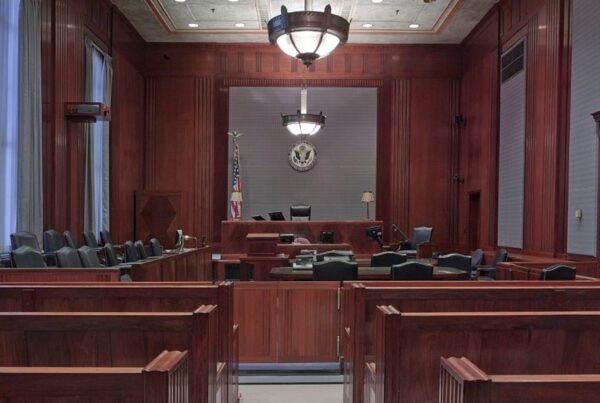What happens when the plaintiff, who chose the forum, cannot appear in court for their own trial?
First, “[a] written motion by a party to present testimony through communication technology must set forth good cause why the testimony should be allowed in the specific form requested.” Fla. R. Gen. Prac. & Jud. Admin. 2.530(b)(2)(A).
In determining whether “good cause” exists, the court may consider, inter alia, “the consent of the parties, . . . the need and ability to review and identify documents during testimony, . . . the need to observe the demeanor of the witness, the potential for unfair surprise, and any other matter relevant to the request.” Id.
Before, under Fla. R. Gen. Prac. & Jud. Admin. 2.530, “all parties ha[d] an absolute right to prohibit the taking of testimony of a witness by communication equipment.” In re Rules of Judicial Admin., 462 So. 2d 444, 445 (Fla. 1985).
In fact, “a trial court’s discretion to allow testimony to be taken through communication equipment [was] triggered only if all of the parties consent[ed].” Cole v. Cole, 86 So. 3d 1175, 1178 (Fla. 5th DCA 2012); cf. S.A. v. Dep’t of Children & Family Services, 961 So. 2d 1066, 1067 (Fla. 3d DCA 2007) (“Under the rule, trial testimony can be taken by telephone only if all parties consent.”).
Although Rule 2.530 was later amended to give courts discretion in allowing testimony by communication equipment without such consent from all parties, the court must still “consider any objection before authorizing the use of communication technology.” Fla. R. Gen. Prac. & Jud. Admin. 2.530(b).
This is because in our legal system, defendants have a right to confront their accuser face-to-face. See Miller v. Miller, 671 So. 2d 849, 851 (Fla. 5th DCA 1996) (“It is a fundamental right in this country to confront one’s accuser.”). Virtual presence at trial via an image on a screen is not the equivalent of face-to-face confrontation. See Harrell v. State, 709 So. 2d 1364, 1368 (Fla. 1998) (“We are unwilling to develop a per se rule that would allow the vital fabric of physical presence in the trial process to be replaced at any time by an image on a screen.”); Arnold v. State, 358 So. 3d 792, 800 (Fla. 3d DCA 2023) (“Courts have recognized that virtual presence is not equal to physical presence for substantive matters.”).
In a federal context, the Federal Rule of Civil Procedure 43 similarly provides,“For good cause in compelling circumstances and with appropriate safeguards, the court may permit testimony in open court by contemporaneous transmission from a different location.” Fed. R. Civ. P. 43(a).
The notes of the Advisory Committee on Rules further indicate, “The importance of presenting live testimony in court cannot be forgotten. The very ceremony of trial and the presence of the factfinder may exert a powerful force for truth telling. The opportunity to judge the demeanor of a witness face-to-face is accorded great value in our tradition. Transmission cannot be justified merely by showing that it is inconvenient for the witness to attend the trial.”
Fed. R. Civ. P. Adv. Comm. Note Rule 43; See also In re RFC & ResCap Liquidating Tr. Action, 444 F. Supp. 3d 967, 970 (D. Minn. 2020) (“Certain features of testimony useful to evaluating credibility and persuasiveness, such as immediacy of a living person can be lost with video technology, and the ability to observe demeanor, central to the fact-finding process, may be lessened.”).
Notably, a party who could “reasonably foresee the circumstances offered to justify transmission of testimony will have special difficulty in showing good cause and the compelling nature of the circumstances.” Fed. R. Civ. P. Adv. Comm. Note Rule 43.
In summary, although Zoom appearances have become increasingly common, participating in a trial remotely may pose challenges, especially for the plaintiff who selected the given forum. This is further complicated if the plaintiff could have foreseen their inability to travel to the chosen location.
For more information on this topic, contact one of our experienced attorneys at 305-570-2208. You can also email our lead attorney Eduardo directly at eduardo@ayalalawpa.com.
We at Ayala Law PA are passionate about helping those in legal need, so please don’t hesitate to schedule a case evaluation with us online here.
[The opinions in this blog are not intended to be legal advice. You should consult with an attorney about the particulars of your case].
Subscribe to Our Blog
Stay informed with our latest blog posts delivered directly to your inbox. Gain valuable legal insights, tips, and advice from our seasoned attorneys.







